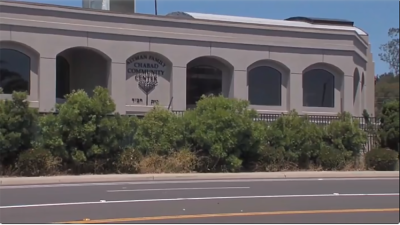In the wake of anti-faith attacks, let’s come together to invest in our younger generation

Following the series of deadly attacks on houses of worship over the past few months, including last month’s San Diego synagogue attack, Christians around the world are struggling to understand how we combat this kind of hatred.
There were more anti-Semitic attacks last year than most people realize. In fact, the number of violent attacks against the Jewish community in the United States doubled from 2017 to 2018. Overall, the New York-based Anti-Defamation League counted 1,879 anti-Semitic incidents — either harassment, vandalism or physical assault — in 2018. And a report by Tel Aviv University’s Kantor Center for the Study of Contemporary European Jewry found that the U.S. had more anti-Semitic attacks than any other country.
Attacks against Christians have risen as well. Today, Christians are the most persecuted religious community in the world. A recent report by the bishop of Truro noted that the persecution of Christians in parts of the world is at near "genocide" levels, and that Christianity faces being "wiped out" from parts of the Middle East.
In the face of this kind of hatred and violence, some American students are still making light of the suffering of other faiths. In March, a photo surfaced showing high school students at a party making a Nazi salute over a swastika made of Solo cups. Last month, student senators at the University of California, Berkeley, made anti-Semitic comments at a student government meeting, referring to “Zionist tears.”
If we want to combat bigotry, we must start by educating our youngest generations, who will be our future leaders and set the course for tolerance. One way we can start is by exposing Christian students to Jewish people, culture and traditions, and vice versa.
It is easy to draw closer, in times like these, with people of our own faith. But we need to start instilling acceptance and tolerance in our younger generations by encouraging them to step outside their comfort zones and engage with people outside their own faith groups.
Jesus taught us to “love your neighbor as yourself” – other than loving God, there is no greater commandment in the Bible. As Christians, we need to use what we have learned from this teaching to lead a movement to develop and strengthen our relationships, in this case, with people of the Jewish faith.
We need to teach Christian students that there is a lot they can learn from people whose beliefs differ from their own, and that is possible to maintain their own beliefs while also admiring the rich teachings, brave history and compassionate leaders of Judaism. The Jewish Sabbath, for example, is a beautiful example of bringing holiness into everyday acts. In turn, many people of Jewish faith respect the Christian teaching of embracing those whom others condemn. After all, Christianity has deep roots within Judaism, which makes the relationship between Christians and Jews quite unique.
We need to encourage collaboration between Jewish and Christian student groups on college campuses. And we need to make travel to Israel more accessible for Christian students. When students have an opportunity to experience a culture or people firsthand, it has a profound effect on broadening their horizons and view of the world.
As the executive director of Passages, a program that takes American Christian college students on tours of the Holy Land, I have seen the transformation that occurs in students after their trip. Some don’t have close relationships with people of Jewish faith; all they know about Judaism may come from outside perceptions. It is important that these young Christians most of all see the region for themselves, in order to understand the religious and political narrative beyond platforms like social media or what they may hear on campus. The trip encourages them to think thoughtfully about the complex issues facing modern Israel and the Middle East. When they return, we encourage them to engage with the Jewish communities on their campuses and in their local areas, such as orchestrating social events or collaborating on writing, volunteer or other projects.
Not only do these trips lead students to ask questions that strengthen their own faith, but the trips teach them to approach other faiths, including Judaism, with acceptance and curiosity, instead of fear or misperceptions. In turn, one day they will teach their own children these lessons.
I encourage all Christians to stand up in the face of bigotry and intolerance by signing our sister organization, the Philos Project’s #WeResolve petition against anti-Semitism. This week, and in the coming months, let us come together with our friends in the Jewish community in prayer for the lives lost to violence. And let us believe that the future can, and will, be different.




















